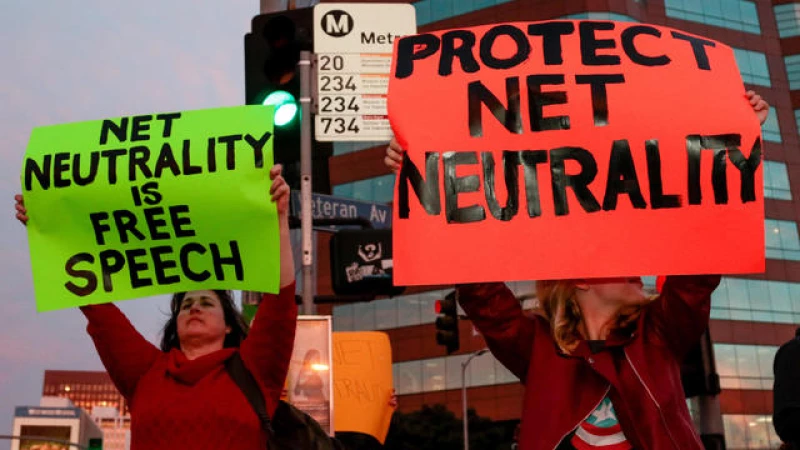Net neutrality regulations have been reinstated by the Federal Communications Commission, prohibiting internet service providers from manipulating customers' browsing speeds or file downloads, as announced on Thursday.
The 3-2 decision to implement these regulations prevents wireless companies from selectively enhancing, reducing, or obstructing users' internet traffic, undoing a policy that was eliminated during the previous administration.
This move sets the stage for a potential legal battle with the broadband industry, marking the latest development in an ongoing conflict between regulators and ISPs. Regulators argue that these protections are essential to ensure fair treatment of all websites, while ISPs view the rules as governmental interference.
When initially proposing the reintroduction of the rule in September, FCC Chairwoman Jessica Rosenworcel emphasized the agency's goal to expand high-speed internet access and safeguard personal data. Net neutrality was initially approved by the agency in 2015 but was later revoked in 2017 under the leadership of then-FCC Chair Ajit Pai.
Consumer advocates have welcomed this reversal, with organizations like Fight for the Future hailing it as a victory for activists and civil rights groups advocating for equal treatment of customers by telecom companies.
Net neutrality rules prevent companies from creating fast lanes on the internet by imposing extra fees for certain websites to load quicker than others, similar to toll lanes. This ensures that all online content is treated equally.
Evan Greer, the director of Fight for the Future, stated, "[P]eople from across the political spectrum overwhelmingly agree they don't want their phone company to dictate how they use the Internet." He expressed excitement that the FCC is taking steps to protect consumers from potential abuses by large telecom companies.







